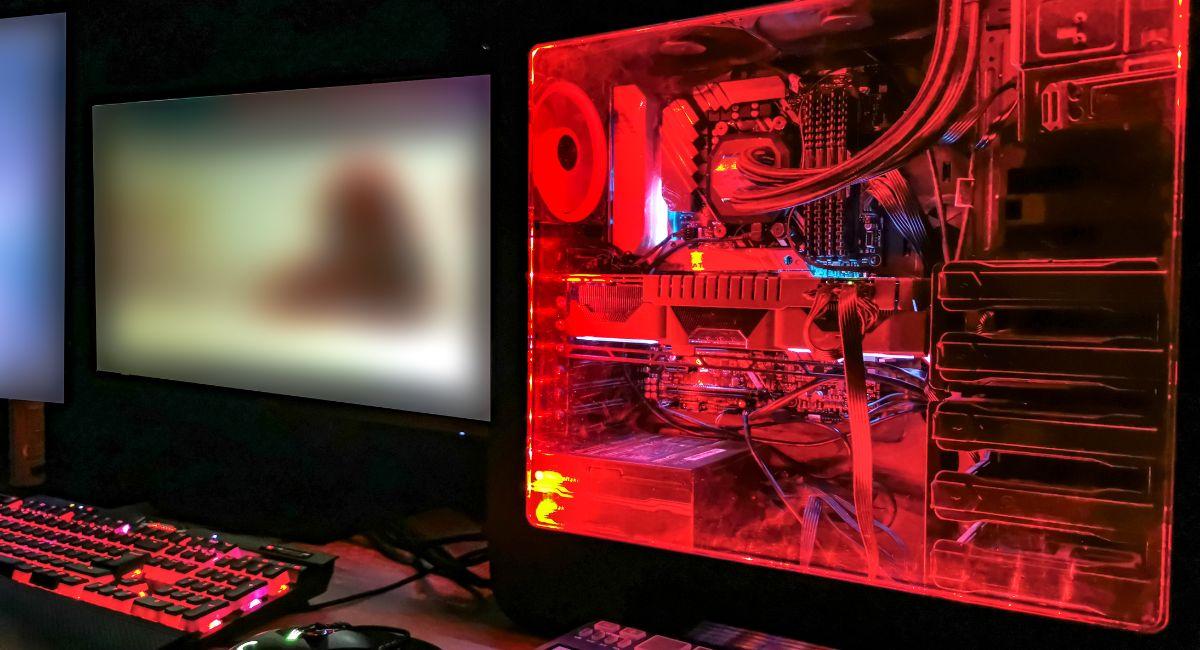February 29, 2024 by Diana Ambolis
1222
Non-Fungible Tokens (NFTs) have become a driving force in the gaming industry, reshaping how companies approach game development and engagement. The integration of NFTs in games goes beyond virtual assets; it introduces new revenue streams, enhances player experiences, and creates unique opportunities for both developers and businesses. Here are the top 10 things companies stand
Non-Fungible Tokens (NFTs) have become a driving force in the gaming industry, reshaping how companies approach game development and engagement. The integration of NFTs in games goes beyond virtual assets; it introduces new revenue streams, enhances player experiences, and creates unique opportunities for both developers and businesses. Here are the top 10 things companies stand to gain from NFT game development.
Top 10 Advantages Companies Gain from NFT Game Development

1. Monetization through Tokenized Assets:
NFTs enable companies to tokenize in-game assets, turning virtual items into unique and tradable digital assets. This introduces a new revenue stream as players can buy, sell, and trade these assets within and outside the game, fostering a player-driven economy.
2. Enhanced Player Engagement and Retention:
By incorporating NFTs, companies create a dynamic and engaging ecosystem where players have a stake in the virtual world. The ownership of rare and valuable NFTs provides a sense of accomplishment, encouraging longer playtimes and increased player retention.
3. Community Building and Loyalty:
NFTs contribute to community building by fostering a sense of ownership and participation. Companies can reward loyal players with exclusive NFTs, creating a dedicated fanbase and fostering a vibrant community around the game.
4. Increased Monetization Opportunities:
NFT game development opens up diverse monetization opportunities beyond traditional models. From the sale of NFTs to participation in exclusive events and experiences, companies can explore innovative ways to generate revenue while keeping players engaged.
5. Cross-Platform Interoperability:
NFTs facilitate cross-platform interoperability, allowing players to carry their assets and achievements across different games and platforms. This interconnected ecosystem enhances player experiences and provides companies with a broader audience reach.
6. Dynamic In-Game Economies:
Companies can design in-game economies that leverage NFTs, creating a dynamic environment where the value of virtual assets is determined by supply, demand, and player interactions. This economic model adds depth to the gaming experience and encourages player-driven markets.
7. Novel Fundraising and Crowdfunding Opportunities:
NFTs offer companies unique opportunities for fundraising and crowdfunding. By tokenizing exclusive in-game items or experiences, developers can raise capital for game development, involving the community in the process and building anticipation.
8. Ownership of Virtual Real Estate:
NFTs extend beyond in-game items to include virtual real estate. Companies can tokenize virtual land, allowing players to own and develop their digital spaces. This introduces new gameplay dynamics and revenue streams for both developers and players.
9. Brand Collaboration and Partnerships:
NFT game development creates avenues for brand collaboration and partnerships. Companies can collaborate with other brands to create limited edition NFTs or exclusive in-game events, enhancing brand visibility and attracting a diverse player base.
10. Innovation in Gameplay and Storytelling:
NFTs pave the way for innovative gameplay mechanics and storytelling. Developers can create quests, events, and narratives tied to specific NFTs, offering unique experiences to players who own or interact with these digital assets.
Also, read- Investing in NFTs: Top 10 Practical Uses of NFT (Non-Fungible Tokens)
Challenges and Considerations:

The NFT (Non-Fungible Token) game development industry is experiencing rapid growth, but it also faces various challenges and considerations. Companies operating in this space need to navigate these complexities to thrive in the competitive landscape. Here are key challenges and considerations for NFT game development companies:
Challenges:
- Scalability Issues:
- Challenge: Scalability challenges on blockchain networks can result in high transaction fees and slower confirmation times, affecting the overall gaming experience.
- Consideration: Exploring layer 2 solutions or blockchain networks with higher throughput to address scalability concerns.
- User Onboarding and Education:
- Challenge: Many users are not familiar with blockchain technology and NFTs, leading to a steep learning curve and potential barriers to entry.
- Consideration: Implementing user-friendly onboarding processes, providing educational resources, and creating intuitive interfaces to simplify the user experience.
- Market Saturation and Competition:
- Challenge: The NFT game development industry is becoming increasingly competitive, leading to market saturation and the need for differentiation.
- Consideration: Focusing on unique gameplay, innovative features, and strategic partnerships to stand out in the crowded market.
- Integration with Traditional Gaming:
- Challenge: Bridging the gap between NFT games and traditional gaming experiences can be challenging, as traditional gamers may not be familiar with blockchain concepts.
- Consideration: Implementing seamless integration, creating hybrid experiences, and partnering with established gaming companies to introduce NFT elements to a wider audience.
- Security Concerns:
- Challenge: The security of smart contracts, in-game assets, and user data is crucial, and vulnerabilities can lead to hacks and asset theft.
- Consideration: Conducting thorough security audits, implementing best practices for secure smart contract development, and prioritizing user data protection.
- Regulatory Uncertainty:
- Challenge: The regulatory environment for NFTs and blockchain gaming is still evolving, leading to uncertainties and potential legal challenges.
- Consideration: Staying informed about regulatory developments, consulting legal experts, and implementing compliance measures to mitigate risks.
- Environmental Impact:
- Challenge: The energy consumption associated with certain blockchain networks used for NFTs has raised environmental concerns.
- Consideration: Exploring and promoting the use of eco-friendly blockchain solutions, participating in initiatives for sustainable practices, and communicating efforts to address environmental impact.
- Interoperability Issues:
- Challenge: Lack of interoperability between different blockchain networks and gaming platforms can limit the transferability of NFTs.
- Consideration: Working towards interoperability standards, collaborating with other projects to establish cross-platform compatibility, and adopting solutions that facilitate asset movement.
- Community Management:
- Challenge: Managing and fostering an engaged community is essential for the success of NFT games, but it can be challenging to meet diverse expectations.
- Consideration: Implementing effective communication strategies, community engagement initiatives, and feedback mechanisms to build a loyal and supportive user base.
- Economic Sustainability:
- Challenge: Ensuring a sustainable economic model for NFT games, balancing tokenomics, and preventing economic imbalances within the in-game ecosystem.
- Consideration: Conducting economic modeling, adjusting token distribution mechanisms, and maintaining a balance between in-game rewards and scarcity of valuable assets.
- Intellectual Property Concerns:
- Challenge: Addressing potential intellectual property issues, including unauthorized use of copyrighted content or disputes over ownership of virtual assets.
- Consideration: Clear legal frameworks, partnerships with content creators, and transparent policies regarding intellectual property rights.
- User Retention:
- Challenge: Maintaining long-term engagement and retention of players can be challenging, especially when competing for attention in a rapidly evolving industry.
- Consideration: Regularly updating content, introducing new features, and implementing loyalty programs to incentivize continued user participation.
The NFT game development industry offers exciting opportunities, but companies must navigate a complex landscape. By addressing these challenges and considering the outlined strategies, NFT game developers can build sustainable, secure, and engaging experiences for their users while contributing to the broader growth of the NFT ecosystem.
The Future Landscape of the companies in the NFT game development industry

The future landscape of companies in the NFT (Non-Fungible Token) game development industry is poised for continued growth, innovation, and evolution. Several trends and developments are likely to shape the industry’s trajectory, reflecting the dynamic nature of both blockchain gaming and the NFT market. Here’s a glimpse into the potential future landscape:
1. Expansion of Metaverse Ecosystems:
- Trend: NFT game development companies will contribute to the expansion of metaverse ecosystems, creating interconnected virtual worlds where players can own, trade, and utilize NFTs across different games and platforms.
2. Blockchain Interoperability:
- Trend: Increased focus on blockchain interoperability will facilitate seamless asset transfer between different blockchain networks, allowing for a more fluid and interconnected NFT gaming experience.
3. Integration of Emerging Technologies:
- Trend: Integration of emerging technologies, such as augmented reality (AR) and virtual reality (VR), will enhance the immersive nature of NFT games, providing players with more interactive and engaging experiences.
4. Cross-Industry Collaborations:
- Trend: Collaborations between NFT game developers and companies from various industries, including fashion, entertainment, and music, will result in innovative crossover projects, expanding the use cases and appeal of NFTs.
5. Innovative Gameplay Mechanics:
- Trend: Continued exploration of innovative gameplay mechanics, including the use of NFTs for dynamic in-game events, unique character abilities, and evolving storylines, will contribute to the depth and longevity of NFT games.
6. Play-to-Earn (P2E) Integration:
- Trend: The integration of Play-to-Earn (P2E) elements will become more sophisticated, offering players diverse opportunities to earn rewards, trade assets, and participate in the economic ecosystems of NFT games.
7. NFT Standardization and Upgrades:
- Trend: Efforts toward standardization of NFTs and upgrades to existing standards will lead to more versatile and feature-rich tokens, allowing for enhanced functionality and programmability within games.
8. Community-Driven Development:
- Trend: Community-driven development will continue to play a crucial role, with companies actively involving players in decision-making processes, voting on game features, and contributing to the overall direction of projects.
9. Sustainability Initiatives:
- Trend: Growing awareness of environmental concerns associated with blockchain networks will lead to an increased focus on sustainability initiatives, including the adoption of eco-friendly consensus mechanisms and offsetting carbon footprints.
The future landscape of companies in the NFT game development industry holds tremendous potential for groundbreaking innovations, community-driven initiatives, and the creation of immersive digital experiences. As the industry continues to mature, companies that embrace technological advancements, prioritize user experience, and adapt to regulatory developments are likely to play a significant role in shaping the evolving landscape of NFT gaming.
Conclusion:
NFT game development has become a beacon of innovation for companies in the gaming industry. From reshaping revenue models to fostering vibrant player communities, the advantages of incorporating NFTs extend beyond virtual assets. As companies continue to embrace this transformative technology, the future promises a dynamic and interconnected gaming ecosystem where players and developers coalesce around the principles of ownership, engagement, and innovation.
































































